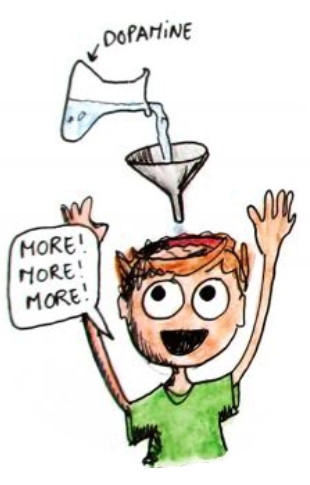
Praising demotivates, slating motivates
There are different approaches to praising people at work as well as plenty of myths regarding the issue. Some managers believe that praising can actually lower people’s performance. They argue that it doesn’t make sense to compliment people too much because it will make them arrogant and pompous. They are scared of commending their colleagues, even if their work is exceptional.
“Adam was a good software engineer. I complimented his results in front of the whole team, but later on I saw a significant drop in his job performance. I’ll never praise my teammates again!”
Mark, IT Team Leader
That’s a common misconception among managers. It’s easy to draw this simple conclusion, especially when you have limited knowledge of team performance and motivation. You praise and compliment someone’s work and when their performance seems to decrease, you make a connection between those events. But typically such a situation is much more complex and there many other factors that can result in poor performance. Complimenting in a good way shouldn’t negatively affect the level of performance. It should actually do the opposite.
I’ve gathered a few facts which prove that praising is in fact a lot more valuable than you might think.
It’s pure science
As human beings we all have it and love it. That one highly addictive chemical. When its level decreases, we feel frustrated, anxious and we lack the motivation for work. But when the level increases, we feel pleasure and pride. This chemical is called dopamine, it’s a neurotransmitter produced in our brain. It’s also one of the most important tools that you can use to motivate people around you.
Evolutionary biologists believe that dopamine gave us the ability to learn and survive. In the olden days, after a successful hunt, we felt satisfied and pleased. But when dopamine was decreasing, we had to start looking for our next prey. We would do anything just to fuel up the level of dopamine in order to feel good again. It was just so satisfying!
Dopamine stimulates the parts of our brain that are responsible for processing rewards and creating positive emotions. No wonder it’s called the chemical of pleasure. The only problem is that it wears off pretty fast and it is very addictive.
An affordable way to boost motivation
As you can expect, recognition for decent work releases dopamine to our brain, thanks to which we experience satisfaction and pleasure. And the crucial part is that we keep wanting it more and more. Subconsciously, we know that fulfilling a task similar to the one we were complimented on before will result in getting a lot of acclaim, which in turn will lead to an increased level of dopamine.
Even though we’re not primitive people anymore, the mechanism remains the same. Nowadays, we may be working in modern offices with computers and latest technology, but winning is still winning. And it doesn’t matter if you work as a software engineer, a lawyer, a doctor, a driver or a constructor worker. Dopamine is a universal chemical responsible for creating positive feelings and increasing motivation.

That’s why if you want to motivate people, consider praising them as a first step. They will come back to you for more. Positive reinforcement and appreciation works especially well in the workplace if you use it regularly. If you do it once a year, people may think it’s insincere. Jim Harter, Ph.D., chief scientist for Gallup, suggests using it as often as you can:
“Recognition is a short-term need that has to be satisfied on an ongoing basis — weekly, maybe daily.”
Praising is important for long-term engagement
In their book entitled “The Carrot Principle” [1], Adrian Gostick and Chester Elton interpreted their data from a 10-year study which included over 200,000 people. They found out that the managers, who praised their employees regularly, had more engaged people on their teams. The turnover rate in those teams was lower than among the managers who only focused on achieving their goals and didn’t bother to praise their teammates at work. Around 79% of employees who quit their jobs cited a lack of appreciation as a key reason for leaving.
Another study performed by Gallup [2] seems to amplify that outcome. Jennifer Robinson also found a strong correlation between praise and retention in the workplace, especially in the long run.
“Employees who report that they’re not adequately recognized at work are three times more likely to say they’ll quit in the next year.”
While many managers still believe that turnover is caused solely by poor candidate selection, the above-mentioned studies prove that there can be different reasons for that. It’s not only about insufficient salary, no fruit at the office or other benefits, great or small. One of the key factors is the lack of appreciation for an employee. People hate it when they do not feel they do their job right or that their work makes sense and their managers appreciate it.
The lack of praise triggers negative feelings
When people don’t receive compliments for their good work, they start to ask themselves: “What am I doing this for?” or “Is my work done properly?” The lack of appreciation at work can result in experiencing negative feelings.
And according to one of the studies [3], people pay more attention to negative feelings than to positive ones. Negative feelings are just much more intense for us. It’s called the negativity bias. That’s why a lack of appreciation can cause a lot of harm in terms of engagement and motivation.
Conclusion
Employees won’t be engaged and motivated when nobody cares about the results of their work. By praising them you show your teammates that you pay attention to them. That they’re meaningful to the organization and to you. And that feeling is crucial for the creation of an emotional bond between employees and the company.
If you want to know how to praise people at work, check out my next article.
References
[1] Adrian Gostick, Chester Elton. Free Press. 2009. The Carrot Principle: How the Best Managers Use Recognition to Engage Their People, Retain Talent, and Accelerate Performance.
[2] Jennifer Robinson. Gallup, Inc. November 9, 2006. In Praise of Praising Your Employees.
[3] Amrisha Vaish, Tobias Grossmann, Amanda Woodward. Psychological Bulletin. 2008 May; 134(3): 383–403. Not all emotions are created equal: The negativity bias in social-emotional development.